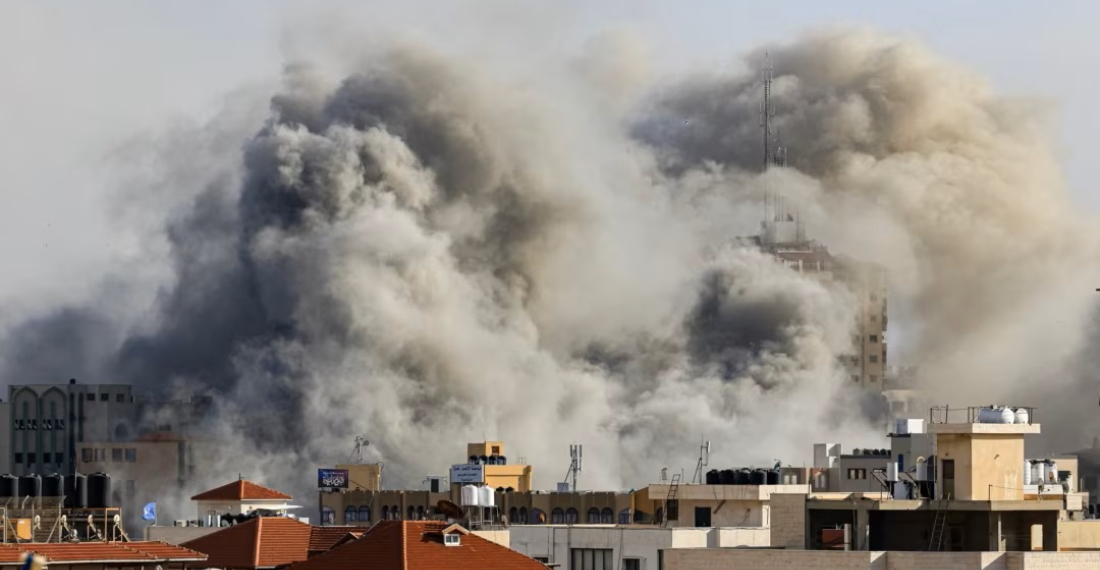The biggest crisis in the Middle East, since the October War in 1973, unfolded yesterday as hundreds of Palestinian fighters broke out of the Gaza Strip, and attacked Israeli towns and settlements nearby.
In what is being described as an audacious operation, which was undetected by the Israelis despite it needing months of meticulous preparations and involving large numbers of people, it is reported that three hundred Israelis died and hundreds more were injured. The Palestinian fighters also took dozens of Israeli prisoners. Israeli has unleashed a punitive operation against the Gaza Strip, with rocket raids hitting the densely populated area which is the home of more than three million Palestinians, in what is sometimes described as "the biggest prison in the world".
International Community scrambles to react
The international community is scrambling to deal with the situations, and possible fall-out. There has been largely condemnation of the Palestinian attack, especially from the US and Europe, whilst other countries, such as Turkey, called for restraint. In the neighbouring Arab countries the events are being watched closely. Official statements from Arab capitals generally condemned the violence, but in the proverbial "Arab street" the mood is more sympathetic to the Palestinian fighters.
The United Nations Security Council will meet on Sunday (8 October) in New York. Special Coordinator for the Middle East Peace Process Tor Wennesland is expected to brief the members of the Council. The meeting was called by Malta, but later the United Arab Emirates also joined the call. According to the authoritative publication "Security Council Report", the meeting was initially requested in the private meeting format but was later changed to consultations after several members expressed a preference for the latter format. While both formats are closed to the public, consultations differ from a private meeting in that it is not a formal meeting of the Security Council. In addition, only Council members can participate in consultations, whereas member states whose interests are directly affected may be invited to participate in a private meeting in accordance with rule 37 and rule 39 of the Council’s provisional rules of procedure.
Saturday's Events
In the early hours of today (7 October), Palestinian armed group Hamas launched a large-scale attack against Israel, firing thousands of rockets and killing and capturing Israeli soldiers and civilians in several towns in southern Israel after crossing the fortified border between Israel and Gaza. At the time of writing, the attacks have reportedly resulted in the deaths of at least 300 Israelis and the wounding of over 1,400 others. According to media reports, some of the Israelis captured by Hamas operatives are being held inside Gaza.
In a 7 October statement, Mohammed Deif, the commander-in-chief of the Izz ad-Din al-Qassam Brigades (Hamas’ military wing), said that the operation was “in response to the continued Israeli crimes against the Palestinian people and violations at the Al-Aqsa mosque”, a reference to the large numbers of Jewish worshippers that have entered the Haram al-Sharif/Temple Mount site in Jerusalem in recent weeks. (Haram al-Sharif/Temple Mount is the holiest place in Judaism and the site of the Al-Aqsa Mosque, the third holiest in Islam. Under an agreement reached after the 1967 Six-Day War, only Muslims are allowed to pray at the Haram al-Sharif/Temple Mount site.) Members of the Palestinian Islamic Jihad (PIJ) are also reportedly participating in the fighting.
Following the attacks, Israeli Prime Minister Benjamin Netanyahu announced that Israel was “at war”. He said that he had ordered the security forces to “clear out the communities that have been infiltrated by the terrorists” and that Israel would return fire “of a magnitude that the enemy has not known”. The Israel Defense Forces (IDF) launched several rounds of airstrikes on what it identified as Hamas targets in the Gaza Strip. According to Palestinian officials by Saturday evening at least 230 Palestinians had been killed and 1,700 others had been wounded in connection with the airstrikes in Gaza.






